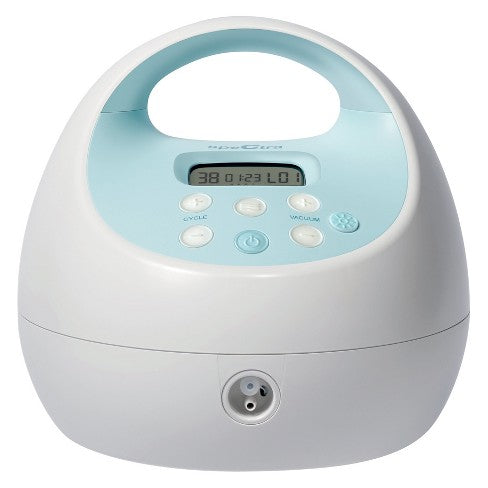How To Choose a Breast Pump

Choosing a Breast Pump
If you plan on nursing, you’re likely going to want an electric breast pump. But, wait, should it be hospital grade? And should you get a wireless one? And will you need a manual one, too? We’ll help you decide what’s right for you.
To Get Or Not To Get: If you want your partner to handle some feedings or plan on going back to work and nursing at the same time, the answer is a resounding yes.
Insurance: The good news is most health insurance plans cover a breast pump, and the options covered are typically some of the most popular brands/models. Be sure to check with yours before purchasing.
Hospital-Grade Pumps: You can typically rent a hospital-grade (read: much stronger/faster than regular pumps) pump from your local hospital or specialized pharmacy. It’s less portable but more efficient, so if you’re exclusively pumping and staying put, it’s a good option.
Wearable Pumps: Hooray for technology! They make completely portable electric pumps that go in your bra, giving you free reign to multi-task. Drive! Take a meeting! Make dinner!
Manual Pumps: If you have a one-off situation where you need to pump (think an event or long flight), a manual pump will do the trick as it’s compact and portable (small enough to fit in a handbag). Note, this typically isn't a solution for a regular pumping schedule, as you are basically hand-expressing and will be a slower process than electric pump.
Portability: If you will be bringing the pump back and forth to an office daily, definitely consider the size/weight of it.
Accessories: Most electric pumps come with a breast shield (flange), but try it out ahead of time to make sure it fits, as they are available in different sizes. (You can also always ask a nurse at the hospital to recommend a certain size.) If you’ll be using it regularly at work, sanitizing wipes are much better than the office sink. And if you’re stockpiling milk in the freezer, you’ll need space-saving milk storage bags.
Spoiled Milk: As a general rule of thumb, your “liquid gold” stays fresh for up to 6 hours at room temp, 4 days in the fridge, 3 months in the freezer, and 6 months in a deep freezer. Don't forget to write the date on the storage bags as you freeze—so you’ll know when your time's up.














